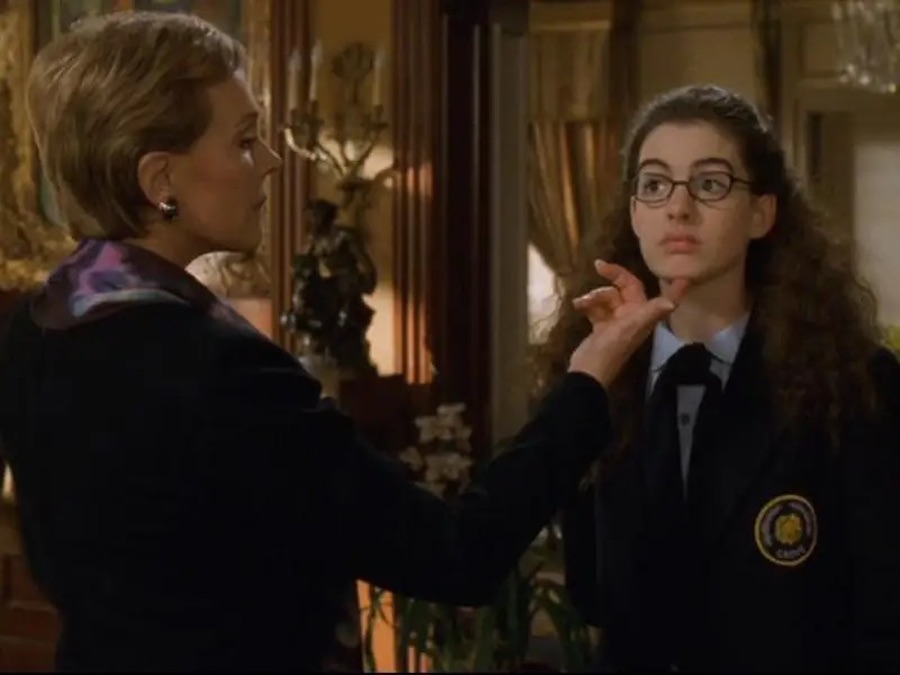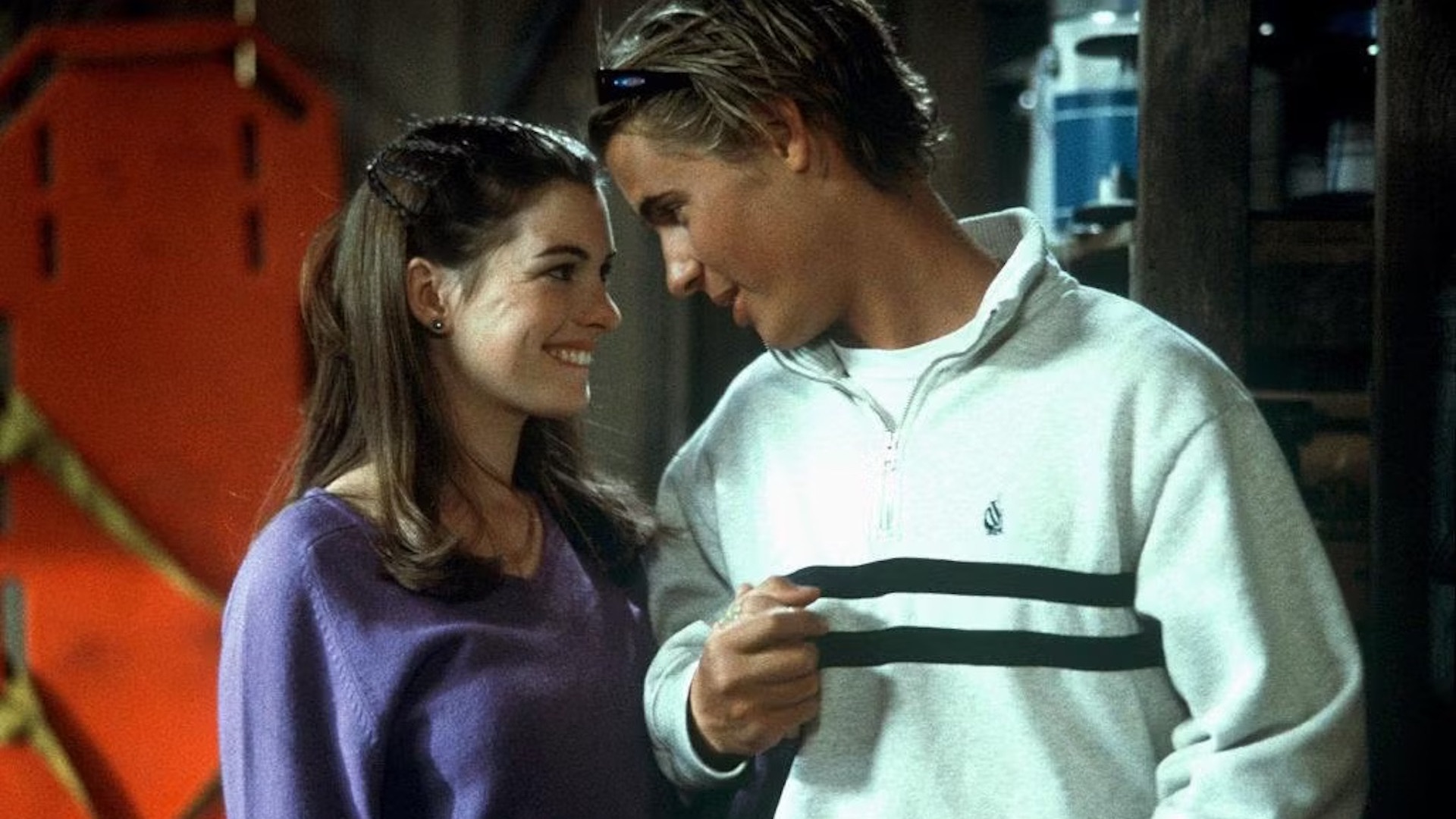Wake up, Prince Charming — Cinderella needs you to talk to the waitstaff while she avoids all eye contact like a cocker spaniel that knows it’s messed up. Then you can tie her shoelaces (glass slippers have laces now?), buy her flowers every single week, and drop her at the door before going to find parking — god forbid a raindrop touches her! Nothing touches my lady BUT ME.
Courtney Palmer (@courtney_joelle on TikTok) isn’t the first to discuss the “princess treatment,” but she’s gone the most viral for it. In her most recent video, Palmer said she doesn’t make eye contact with the hostess and rarely speaks to waitstaff, letting her husband “lead” and order everything. “If I am at a restaurant with my husband, I do not talk to the hostess, I do not open any doors, and I do not order my food,” she said. She even extended this to other interactions, like coat check and valet.
While some resonated with her thought process, others on the internet were… less than impressed.
@jojoejoelle Princess Treatment Dining Edition 🕊️🤍 #princesstreatment #princesstreatmentonly #husbandwife #marriage #marriedlife #husband #healthymarriage ♬ original sound – courtney_joelle
Sabrina Zohar, dating coach and host of the Do the Work podcast, says this trend misunderstands what being “treated well” means in a relationship.
“Being loved well means having a partner who sees you, supports your growth, and shows up consistently,” Zohar tells Betches. “It’s someone who does thoughtful things because they care about your happiness. But princess treatment? That’s expecting someone to anticipate your unspoken needs, manage your basic tasks, and orbit around you while you remain passive.”
Zohar clarifies that the problem isn’t with wanting care from our partners. “We all deserve that,” she says. The problem is confusing being loved with being waited on hand and foot. “Real love involves reciprocity, communication, and both people contributing,” Zohar explains. “When you expect someone to mind-read your needs and fulfill them without you having to ask or participate, you’re not seeking love. You’re seeking a parent-child dynamic with someone you’re supposedly building an equal partnership with.”
Let’s unpack how the princess treatment trend fits into modern-day dating — and has it gone too far?
Is Princess Treatment Giving Tradwife?

The “princess treatment” might seem harmless on its own, but let’s be real — these things never exist in isolation.
We’ve been circling the tradwife trend for a few years now, from Nara Smith making cereal from scratch to influencer wives raising a dozen kids on a farm, baking sourdough, and warning us about the evils of feminism.
To be clear: I fully believe in women making their own choices. But tradwife propaganda often masks something more insidious — a regression in how we view women’s agency. It’s no coincidence this rise overlaps with the downfall of body positivity and the Ozempic-fueled push to make women smaller in every sense.
“You don’t need to overspeak or overexert yourself,” Palmer preaches in her viral TikTok. “You’re not going to be laughing loudly, speaking loudly, or demanding the attention of the room when you’re at a restaurant.”
What could be smaller than a woman who won’t speak for herself and renders herself fully dependent on her partner? If he opens your car door, he can also choose when not to. If he orders your food, he can also decide what you eat. You essentially become his Barbie doll to dress, carry around, and — apologies — fuck.
Look, I’ll be real with you: sometimes…I like to be a lil submissive. I dated someone recently who surprised me by taking control. At dinner, he asked what I was going to order. I told him (it’s always the pasta!!), and when the waitress came, he ordered for both of us, then checked to make sure I didn’t want anything else. As an anxious girlie with historically low standards, I was ready to rip his clothes off for that.
Later, he showed the same assertiveness in the bedroom, which was apparently as surprising to him as it was to me. I’d been bossy in bed before, and it was kinda nice to be told what to do for once—consensually, of course.
But there are two major differences between this and what Palmer calls the princess treatment. First, there was no expectation that he’d order for me — he just did it in a way that still left space for my opinion. Second, he only took the lead in the bedroom because he could tell I enjoyed it. Another time, I took charge, and that was fine too. I even took our orders to the bar one night like a big, brave girlie.
There’s a time and place to be submissive or dominant. Preferences in the bedroom? Totally valid. But it becomes a problem when it’s treated as the default dynamic outside of it. I’m not a princess who can’t lower herself to speak to waitstaff or muddy her shoes. I’m a grown-ass woman who expects to be treated as such.
How Do Gender Roles Influence This Dating Trend?
According to Palmer’s TikTok, the princess treatment is about femininity and masculinity. She’s choosing femininity through her meekness, giving her husband a chance to express masculine energy by pulling out her chair, speaking for her, and taking the lead.
“It begins with how you care for yourself. It’s not about him, it’s about you. You’re choosing softness, calm, and grace. It’s very intentional,” Palmer says. “You’re speaking kindly to yourself. You’re making space for that peace by embracing your feminine energy without shame.”
I have no issue with embracing femininity. My problem is when femininity gets reduced to “soft, calm, and graceful.” It’s like the belief that tattoos can’t be feminine, or that plus-sized women can’t be either. It’s the core issue with the “too much” girls, of which I’m a proud member.
Feminine energy can be loud and emotional, proud and funny, passionate and yappy. This is the same logic behind the clean girl aesthetic: to be accepted, you must erase all rough edges and original thought.
Zohar puts it like this: “Rigid gender roles reframe dependency as polarity, which completely misses what healthy masculine/feminine dynamics actually look like. True polarity comes from two whole people choosing complementary roles — not one person being assigned caretaker while the other performs helplessness.”
But, What Is The Bare Minimum?
Not everyone hates the idea of the princess treatment, judging by some of the comments on Palmer’s videos. One user wrote: “Insane to me how we (women) are used to being treated poorly, and I’m happy to see this type of content.”
(Cue Carrie Bradshaw voiceover) I couldn’t help but wonder… are we just so used to the bare minimum that the princess treatment feels like the dream? Have we been conditioned to believe that a straight man putting on a condom without being asked is an act of God?
“We’ve lost sight of what the bare minimum should look like because we’re used to accepting breadcrumbs,” Zohar says. “Now, basic respect and communication feel like a luxury.”
Since Zohar literally helps people break cycles of shitty relationships, I asked her: What is the actual bare minimum?
“The bare minimum is both people showing up as whole humans,” she explains. “It’s direct communication — saying ‘I need support with this’ instead of expecting mind-reading. It’s expressing gratitude. It’s reciprocating care in a way that works for your relationship. It’s maintaining your identity while building something together.”
She adds, “Acts of service are beautiful when they’re freely given, not extracted through expectation. There’s a big difference between a partner bringing you tea because you’re stressed and a partner being expected to monitor your tea needs at all times.”
I enjoyed that guy ordering for me because it was a surprise, not a necessity. And the next morning, at brunch, I ordered for myself.
Too often, we think romance means big bouquets or oyster-fueled date nights. But the real magic? It’s choosing a restaurant closer to my apartment when I’m wearing my sexy but painful boots. It’s coffee in bed. It’s sending me photos of dogs you encounter on the subway.
All of that makes me feel like a princess. But not because I can’t take care of myself. Because I know I don’t have to this time, but I still can.




















































